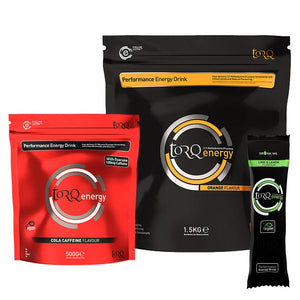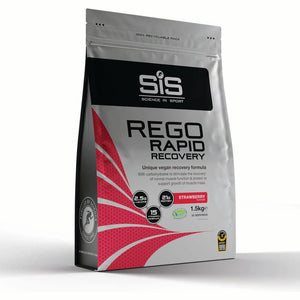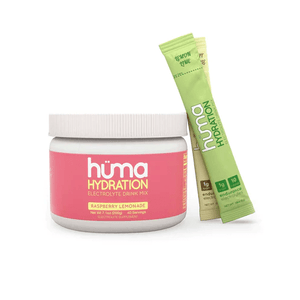It’s your choice - with our knowledge.

Product Insights
Discover more about the products in this article

TORQ Energy Drink
Featured Products
The Role of Nutrition in Cycling Performance
The health benefits of cycling, both physical and mental, are numerous and for many people cycling is more than just a sport or hobby.
It’s a way to connect with nature and the outdoors, creates a feeling of adventure and freedom, and allows time away from the stresses of daily life.
Before you hit the road there are a few key preparations you must make to ensure a safe and successful ride, including making sure you’re getting the correct nutrition.
Proper nutrition plays a key role in all sporting/athletic success in all disciplines, including cycling.

What is Cycling nutrition?
Cycling nutrition, like most athletic nutrition, should focus on three key Macronutrients: Carbs, protein, fat.
Understanding nutrition can be confusing and can take years to fine tune as it is very personal, and no two people will have the exact same nutritional needs.
You can use our Nutrition Calculator to work out and plan how much nutrition you will need for a ride, with the amount needed depending on your predicted time.
Here’s what we recommend to get you started.
Before.
Your pre-race nutrition will depend on two things, how much time you have, and how far/long you’re running.
Before a long ride, 1hr+.
Before a long ride or race (1hr+) you should try to eat a good meal around 2-3 hours before hopping on the bike. This will allow time for proper digestion and nutrient absorption. Aim to eat a meal that is well balanced in carbs, protein, and a small amount of unsaturated fat.
Meal ideas:
- Breakfast wrap: Eggs, cheese, veggies, salad, wholewheat wrap.
- Porridge with berries and nut butter.
- Grilled salmon, broccoli, and boiled new potatoes.
If you have less time, then try to eat something lower in fat and protein and with easy to digest carbs.
Before a shorter ride, 1hr or less.
If you’re only going for a ride lasting an hour or less, then you can eat closer to setting off.
1 hour is the ideal time to give your food enough time to digest and make sure your body absorbs the key nutrients that will keep you going during your ride.
As mentioned before just make sure to keep this meal/snack lower in fat and protein and higher in easy to digest carbs.
Energy Drinks:
When you’re short of time and not planning a super intense workout, this can be the ideal time to use an energy drink as your pre-ride fuel.
Look for energy drinks such as the TORQ Energy Drink (caff or non-caff) that provide dual-source carbs. Getting your carbs from multiple different sources means they will absorb much quicker than if you were to use a single source such as Maltodextrin.
See Exploring Carbohydrate Sources: Which One Is Right for You? for more on the different carb sources and how to choose the right one for you.
During.
Even for shorter rides a little fuelling can go a long way.
Long rides +1hr.
For a longer ride of around 1-3 hours you will be focusing on hydration and carbohydrate replenishment. For this length of ride most people will need somewhere between 30-60g carbs per hour which can come from both drinks and food.
You should carry 1-2 bottles of hydration/energy drink mix along with some easily digestible snacks like energy bars, energy chews, or even energy gels.
It’s a good idea to spread your 30-60g carbs out across the hour rather than trying to consume them all at once, this will reduce the risk of gastrointestinal upset. You can do so by sipping on your energy drink and nibbling solid snacks here and there.
Shorter rides, 1hr or less.
During a shorter ride your main priority should be hydration and fluid replenishment. Carry water or a low-carb hydration drink like the EFN H500 Hydration Drink Tablets.
In terms of food you might like to take an energy bar or banana just in case however you won’t always need this.
After.
Recovery nutrition usually follows the same key principles but does depend on the length and intensity of exercise, and how soon you’ll be getting back on the bike.
The main goals of Recovery Nutrition are:
- Replenish Glycogen Stores.
- Hydration- Replenish fluids and electrolytes lost through sweat.
- Promote muscle repair and growth- By consuming protein
After an intense ride you should aim for around 1g carbs per kg of body weight, and a 20-30g portion of protein.
If you’ve been on a shorter ride of around 30 minutes or so then it’s unlikely you’ve burned through much of your body’s glycogen stores. In this case you will still need to eat following exercise but shouldn’t worry about loading up on carbs, any meal you would usually eat should be sufficient.
Recovery on the go.
As a general rule it is best to start refuelling within 30 minutes after exercise.
If you’re still out and about and can’t eat a proper meal for a while, having a recovery drink in the first 30 minutes of your ride will set you up with the carbs and protein you need to kickstart your recovery.
Try the REGO Rapid Recovery from SIS which provides 20g carbs and 22g protein, as well as a whole host of Vitamins and Minerals to support your recovery.
Recovery meal ideas.
Once you’re able to sit down for a meal after your workout, you can really eat anything with a good balance carbs and protein.
Unless you’ve got to get back on the bike in the next 24 hours there’s no need to be super strict about your recovery meal and you can really eat anything you like.
Here are some recovery meal ideas:
- Poached eggs on toast- 2 eggs or 1 egg and half a tin of beans.
- Grilled chicken & avocado sandwich or wrap.
- Chili with rice.
Hydration.
It’s important to make sure you’re always well hydrated, even when you’re not exercising. As mentioned before if you’ve only been on a short ride you’re unlikely to be fully depleted, especially if you’ve been sipping on an energy or hydration drink throughout the ride.
However, if you’ve been for a ride of an hour or longer, or cycling in hot weather, you should make sure to replace electrolytes lost through sweat.
The best way to replenish electrolytes quickly and efficiently is with a hydration drink or electrolyte replacement such as the Huma Hydration Low-Calorie Drink Mix.
How does nutrition impact cycling performance?
Proper nutrition for long rides can impact your cycling performance in several ways.
Improved energy:
Eating right before hitting the road will increase your energy levels, setting you up for a successful ride.
Improved endurance:
You should always set out for a ride feeling fresh and fuelled, by getting the correct nutrition beforehand and carrying the right fuel you can maintain this feeling for longer.
Refuelling throughout a long ride will keep you topped up and avoid an energy crash.
Improved focus/reflexes:
When your energy level crash, so do your blood glucose levels. This causes impaired decision making and reflexes because the brain runs on glucose.
Sharp reflexes and overall awareness of your surroundings are especially important in cycling as conditions can change suddenly.
To stay safe you must be aware of what’s going on around you especially when riding on the road, and able to react quickly to potential hazards and dangers you might come across.
Improved recovery:
Getting the proper recovery nutrition will ensure you bounce back faster and improve your performance on your next ride.
Related Articles:
It’s your choice - with our knowledge.











































































































